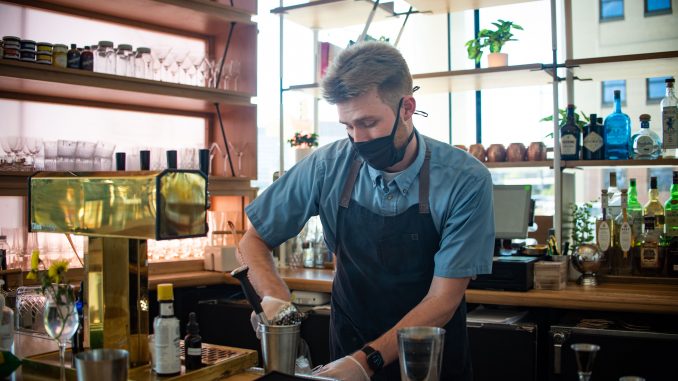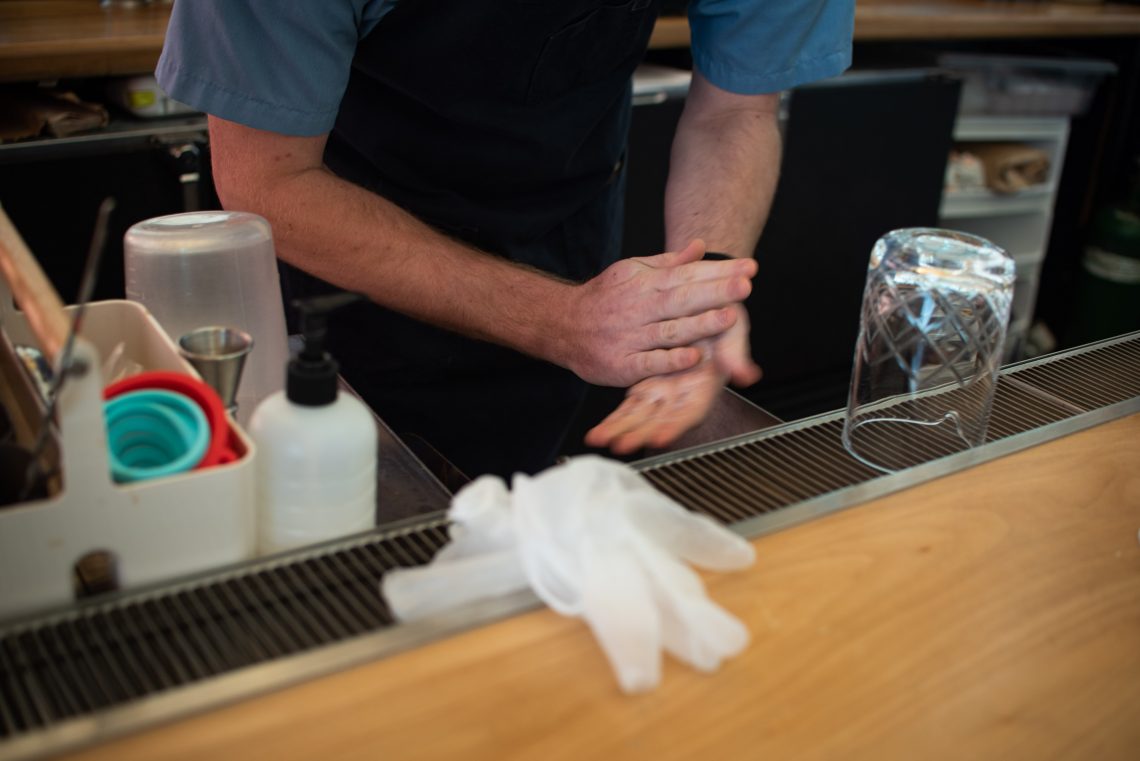
Seeing indoor dining resume makes Amanda Pascale feel like the COVID-19 pandemic is being ignored, she said.
“For me, I feel anxious and I don’t feel like it’s gotten any better,” Pascale, a sophomore undeclared major said. “It feels unsettling to be working while still in a pandemic because they’re prioritizing businesses and not individuals’ health.”
Some Temple University students are working in restaurants to support themselves financially this semester. At their jobs as hosts, food runners and bartenders, they balance taking classes and earning income to pay for rent and tuition while maneuvering COVID-19 dining regulations.
While Pennsylvania increased indoor dining capacity to 50 percent on Sept. 21, Philadelphia waited to raise its dining capacity until Oct. 2, The Temple News reported.
To increase occupancy, businesses must become self-certified through the online Open & Certified Pennsylvania program, which requires them to regularly clean and disinfect their spaces, create protocols for if there is a positive COVID-19 case among their employees and screen workers for COVID-19 symptoms prior to their shifts.
Clayton Dombach, a senior theater major, started working as a host at Indeblue, a restaurant on 13th Street near Chancellor, after Philadelphia allowed outdoor dining to resume in June, so he would be able to pay his rent.
“Working amidst a pandemic was more out of necessity than anything else,” Dombach said. “We’re taking all the precautions that we can but despite all of that, the chance that a staff member or a customer can have it and spread it very quickly does not feel good.”
Although Indeblue is taking all of the Centers for Disease Control and Prevention’s recommended precautions to prevent the spread of COVID-19, Dombach is still concerned that staff members or customers could carry and spread COVID-19, he said.
“Even if we are fulfilling the restrictions, we are still facing a risk,” Dombach said. “It’s a risky industry to be in right now.”
Adults who tested positive for COVID-19 were twice as likely to have dined at a restaurant than those who tested negative, according to the CDC.

Pascale is working as a food runner at Bertucci’s in Springfield, Pennsylvania and taking a leave of absence this semester. She plans to return to Temple after she saves enough money to pay for rent and save for next semester, she said.
“It doesn’t feel right working because of [COVID-19], but I want to be able to pay my rent,” Pascale added.
Aaron Hines, a senior marketing major and bartender at Walnut Street Cafe on Walnut Street near 30th, said that after eight years in the industry, he has become more aware of regulations like sanitation and adapting old habits to adhere to new COVID-19 guidelines, he said.
“There are normal tendencies that you have to retrain yourself to do, such as switching gloves, not touching your mask and table touching,” Hines said.
In a Sept. 23 poll of Philadelphia diners, 46 percent of restaurant patrons are not comfortable with dining at a restaurant and 40 percent prefer take out and delivery only Eater Philly, a food and dining news site reported.
Dombach said he believes restaurants in the city opened prematurely. With winter approaching, he is fearful that loosening restrictions could lead to another COVID-19 shutdown as more people are exposed to the virus.
“Especially as we get into the colder months, I am getting more nervous about indoor dining because we are dealing with the flu season and on top of that a pandemic, while squeezing as many people as we can in one space,” Dombach said.


Be the first to comment